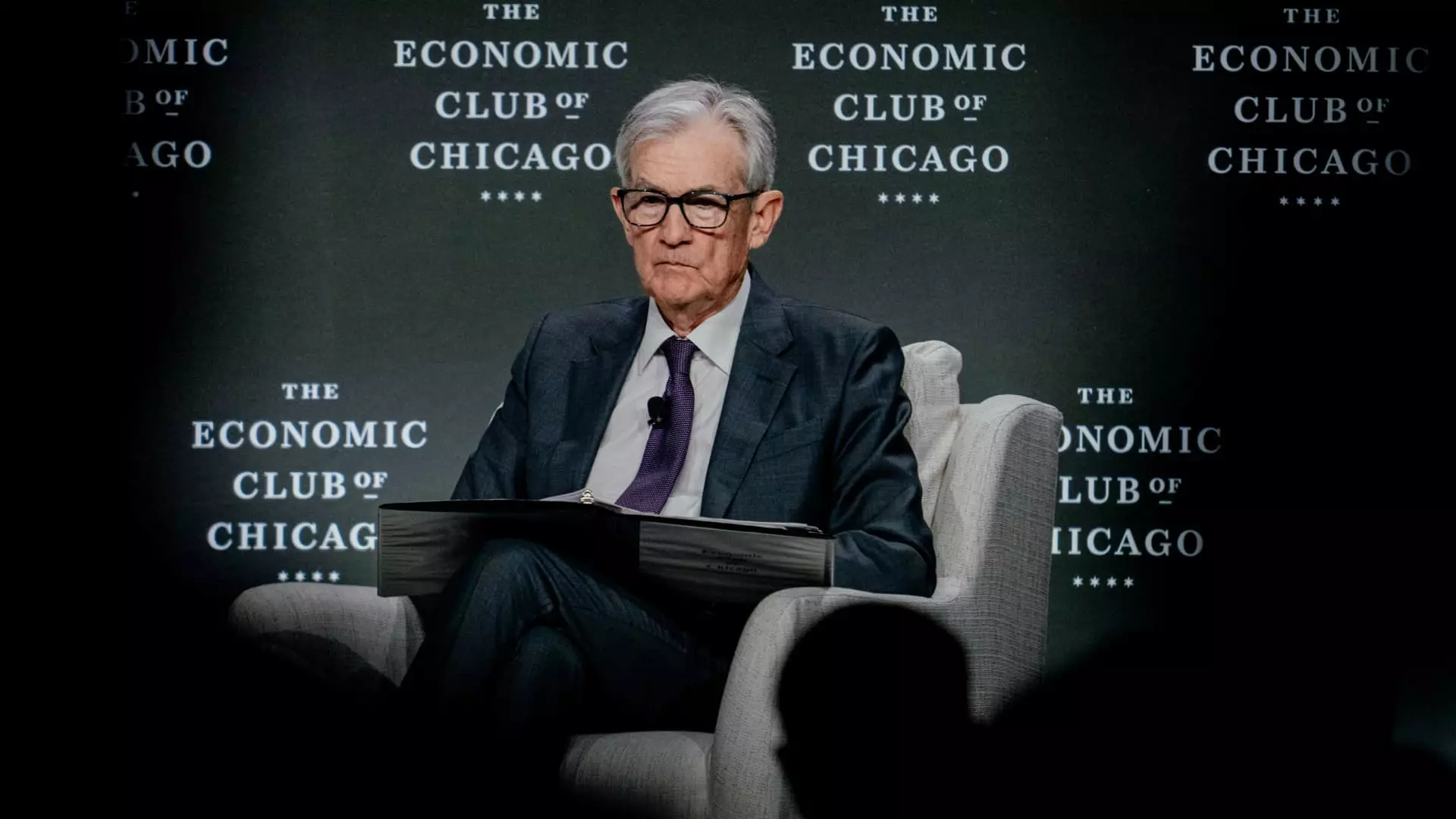When Donald Trump took office, he appointed Jerome Powell as the chairman of the Federal Reserve with great expectations. However, over time, this alliance has soured spectacularly. Trump’s recent incendiary remarks, labeling Powell a “major loser,” reveal not just personal vendetta but also a deeper impulse to exert political control over economic governance. This is a striking indication of how Trump’s philosophy undermines the independence of crucial financial institutions. A president should support dialogue and cooperation rather than devolving to personal attacks, especially against a figure like Powell, whose job is to safeguard long-term economic stability.
Trump’s incessant demands for “preemptive cuts” in interest rates, amidst his claims of “virtually no inflation,” seem more reflective of his political motivations rather than grounded economic logic. This line of reasoning grates against the serious realities economists face. Suggesting that interest rates be lowered in response to an alleged absence of inflation does not merely risk undermining economic principles; it might also propel the U.S. toward a greater crisis, should inflation surge again. This reckless handling of economic levers could be construed as an attempt to manipulate the Federal Reserve for electoral gain, showcasing an alarming trend of conflating economic stability with political aspirations.
The Market’s Wobble: Consequences of Presidential Overreach
The consequences of Trump’s direct confrontations with Powell have been nothing short of turbulent. On a single day marked by Trump’s latest verbal salvos, the Dow Jones Industrial Average plummeted nearly 750 points, illustrating the fragility of investor confidence when faced with political instability. The markets’ reaction sends a message that should preach caution: the health of the economy is intricately tied to public faith in its overseers, both political and monetary. When the head of the country consistently threatens the very institution meant to safeguard economic equilibrium, the implications are catastrophic.
Krishna Guha’s warnings about potential sell-offs should be heeded, as they underscore the connection between the independence of the Federal Reserve and the stability of financial markets. A government that works against its own independent institutions invariably sows seeds of doubt among investors and citizens alike. Should Trump attempt to remove Powell from his post before the latter’s term concludes, it would not just ignite a market backlash; it would represent a pivotal moment in the ongoing struggle for the soul of U.S. economic governance.
Tariffs, Trade, and Trump: The Economic Minefield
Compounding the turmoil is the specter of Trump’s trade wars, which Powell recently noted could further constrict growth and fuel inflation. By imposing tariffs, the administration is not merely causing short-term frictions in the market but laying the groundwork for a long-term economic quagmire. Trump appears unperturbed by the warnings and the implications of his policies; instead, he seeks to sidestep accountability by blaming the very institutions tasked with mitigating economic fallout.
This ongoing drama raises an important question: will America’s economy thrive under a leadership style that embraces authoritarian tendencies, particularly when it involves encroaching upon the independence of the Federal Reserve? The risks of such a political trajectory could lead to a myopic understanding of broader economic dynamics, casting aside strategic long-term planning for short-term political expediency. When leaders disregard empirical evidence in favor of ego-driven narratives, their nations suffer.
A Call for Economic Integrity Amid Political Strife
The unfortunate reality is that the economic health of the United States is caught in a tug-of-war between political ambitions and the necessities of sound monetary policy. The seductive pull of immediate actions can often eclipse the wisdom of measured responses that characterizes a wise leader. If politicians like Trump refuse to acknowledge the importance of independent institutions and their expert assessments, they not only jeopardize the immediate economic landscape but also cloud the future for generations to come.
The Federal Reserve’s decisions should be left to its economic experts who are dedicated to ensuring stability and growth, unburdened by the whims of political leaders. The current environment, fraught with tension and unpredictability, calls for a rethinking of how the relationship between political power and economic governance is structured. The present struggle underscores the pressing need for a renewed commitment to integrity in our economic institutions, emphasizing the importance of professionalism over partisanship. A society thrives best when its leaders place the economy and its citizens above their political selves.


Leave a Reply